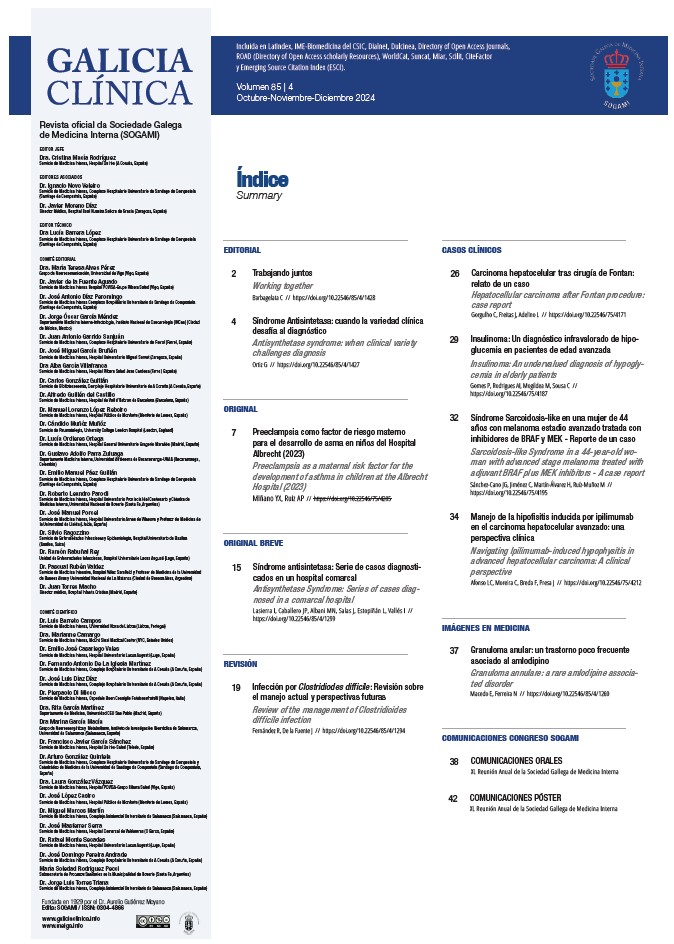Resumen
Introducción: El síndrome antisintetasa es una enfermedad autoinmune poco frecuente que afecta múltiples órganos. Se caracteriza típicamente por la presencia de polimiositis, enfermedad pulmonar intersticial y autoanticuerpos antisintetasa. Además, es común que los pacientes experimenten fiebre, artritis y el fenómeno de Raynaud. El diagnóstico se orienta mediante la detección de varios anticuerpos específicos. En términos de tratamiento, se emplea una combinación de corticoides y otros inmunosupresores.
Material y métodos: Serie de casos en la que se describen tres pacientes con síndrome antisintetasa.
Resultados: Se presentan tres casos de síndrome antisintetasa que exhibieron la tríada clásica de manifestaciones clínicas, sin embargo, presentaron diferentes anticuerpos específicos y patrones intersticiales. Cada caso requirió un enfoque terapéutico diferente con distintos fármacos inmunosupresores. Estos casos subrayan la variabilidad en la presentación clínica y la necesidad de una individualización en el manejo terapéutico del síndrome antisintetasa.
Conclusión: El síndrome antisintetasa es una patología poco común que reviste una gran importancia en la evaluación de pacientes que presentan polimiositis y enfermedad intersticial. Es fundamental considerar la solicitud de pruebas específicas de anticuerpos antisintetasa para facilitar un diagnóstico precoz y preciso. Esto es crucial para garantizar un abordaje terapéutico oportuno y adecuado, mejorando así el pronóstico y la calidad de vida de los pacientes afectados.

Esta obra está bajo una licencia internacional Creative Commons Atribución-NoComercial-SinDerivadas 4.0.
Derechos de autor 2025 GaliciaClinica - Revista Oficial de la Sociedad Gallega de Medicina Interna SOGAMI

